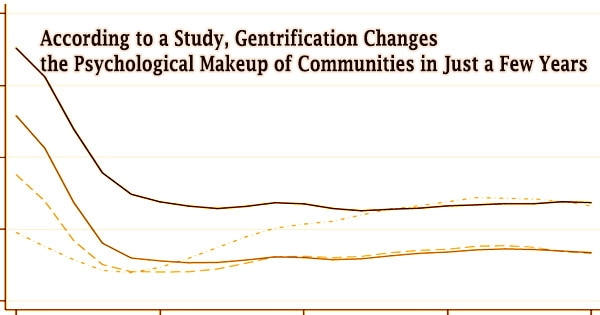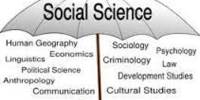Rising housing prices may alter the psychological makeup of US cities in the future years, with citizens becoming more open-minded not only as wealthier individuals move in, but also among long-term residents.
According to a study done by the University of Cambridge, nearly two million people in the United States live in 199 cities. Psychologists matched annual personality scores to local housing markets over a nine-year period (2006 to 2014).
The researchers discovered that just a $50 increase in a city’s average housing prices caused inhabitants’ “openness” to grow considerably (relative to other US cities). One of the five primary personality traits is openness, which encompasses levels of curiosity and inventiveness.
Changes in property prices were linked to movements in ‘Openness’ in US cities like New York and Chicago, where the attribute was already relatively high compared to the rest of the country.
Even in San Francisco, which has long been known for its open-minded citizens, citywide ‘Openness’ increased dramatically over the nine-year period as average housing costs increased by over $200.
The previous study has found that the prevalence of “social amenities” such as restaurants, theaters, sports venues, green areas, and high-performing schools has a significant impact on housing prices.
The authors of the study claim that such amenities appeal to open-minded people, and that having more access to them helps to foster “local cultures of openness.”
“Theorists going back to Karl Marx have argued that economic development drives national shifts in personality and culture,” said Dr. Friedrich Götz, lead author of the study published today in the journal American Psychologist.
“We can now see how rapidly those changes occur in smaller and more nimble communities such as cities, where major cultural shifts can be experienced in just a few short years, rather than decades or centuries,” he said.
Theorists going back to Karl Marx have argued that economic development drives national shifts in personality and culture. We can now see how rapidly those changes occur in smaller and more nimble communities such as cities, where major cultural shifts can be experienced in just a few short years, rather than decades or centuries.
Dr. Friedrich Götz
Liberal votes and views, as well as entrepreneurial activity, are highly linked to the trait of ‘openness.’ It’s also tied to socioeconomic status: having enough money and security might give you the desire and freedom to try new things.
By adding education and self-reported “social class” into computations, data modeling was utilized to discount socio-economic status at an individual level. For ‘Openness,’ the researchers separated the cities from general national and state-level trends.
The psychologists then looked into two major ways in which property costs and related amenities are linked to personality shifts in metropolitan populations.
When particular types of people are drawn to cities or neighborhoods by the local culture, this is referred to as “selective migration.” “Social acculturation” refers to changes in people’s personality as a result of exposure to new experiences, such as art scenes, various cuisines, and more open-minded neighbors.
Researchers tried to separate these impacts by dividing the data between “established populations,” or those who had lived in a city before to 2006, the study’s first year, and “newcomer populations,” or those who moved between 2006 and 2014.
Rising housing costs indicated a large increase in ‘Openness’ among both established and newcomer populations in cities across the US, according to the study.
“Substantial personality shifts within cities can and do occur within a couple of years,” said Dr. Jason Rentfrow, the study’s senior author from Cambridge’s Department of Psychology.
“Cities are magnets for certain types of people, even as they become increasingly unaffordable particularly for young people. These cultural changes may go on to affect the personality of long-term residents.”
“Research has shown that openness is related to economic resilience, creative capital and innovation, as well as liberal politics and arts,” adds coauthor Tobias Ebert. “The geographical clustering of personality reinforces existing social and economic differences across the country. We can see this reflected in contemporary political divisions.”
The authors of the study point to cities like Pittsburgh, which was once a center of blue-collar industry, was devastated by the manufacturing collapse in the 1970s, but by the mid-1980s had transformed into a center for medicine and higher education, resulting in rising housing costs and a cultural transformation that continues to attract the young and open-minded.
The researchers looked at all main personality qualities in the study, including neuroticism and extroversion, but only openness was linked to housing expenses. Importantly, housing costs tend to drive local culture, not the other way around: increases in openness did not predict higher housing costs.
















